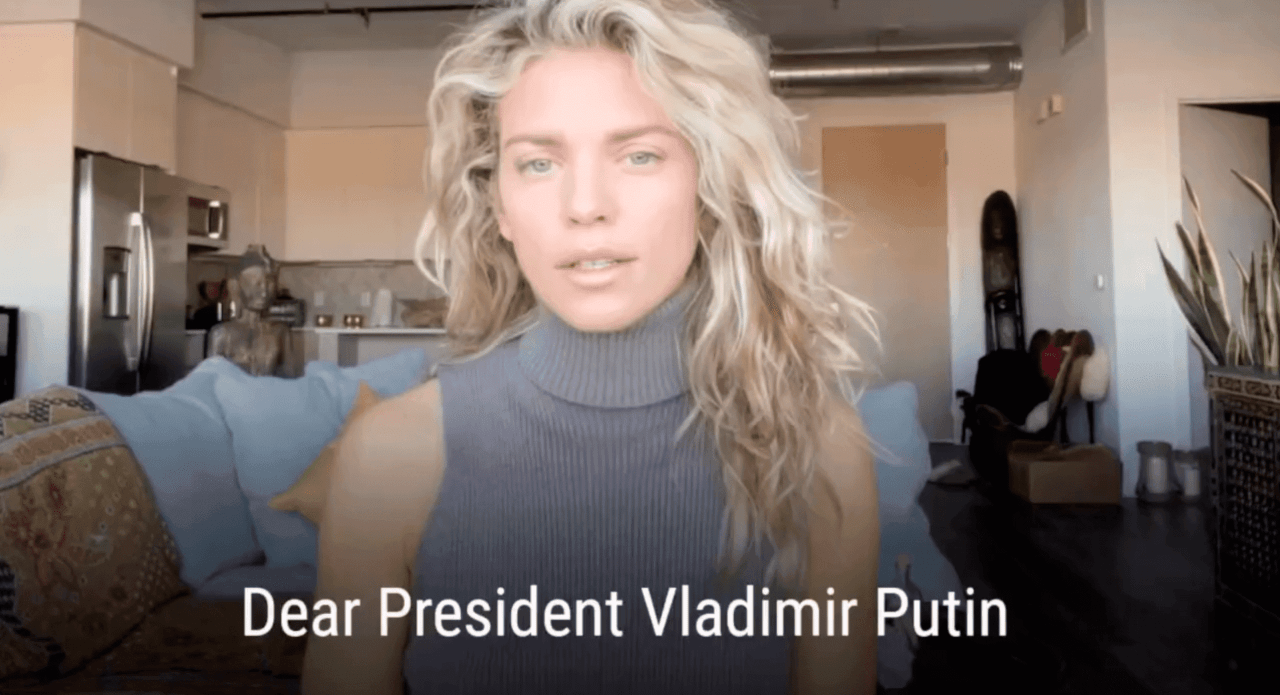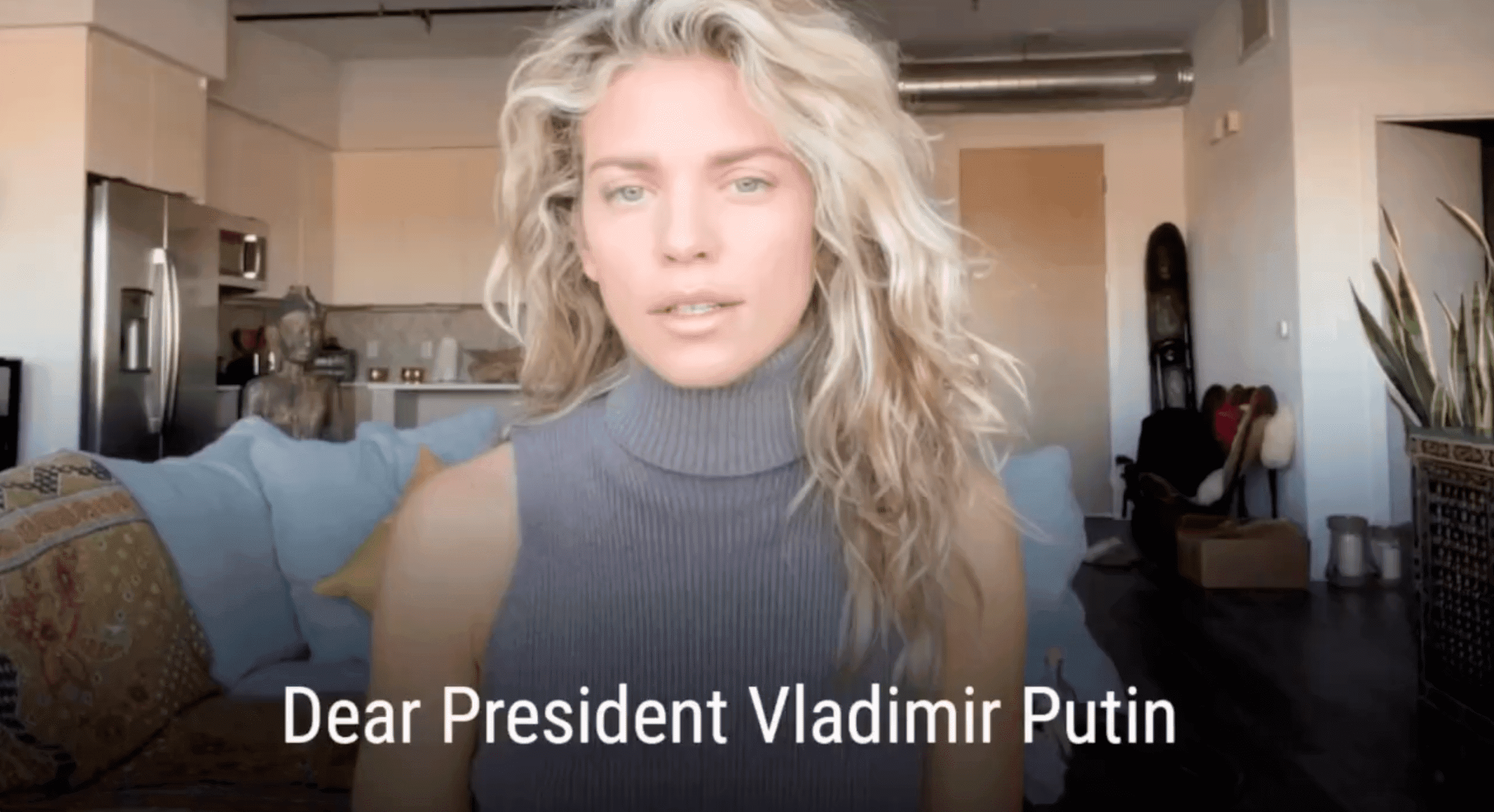In times of war and strife it’s only natural to feel anxious and worried. It’s a normal, primal reaction. What’s not normal, however, is to conspicuously advertise that fact, and to use a calamity to let the world know what a deeply concerned and conspicuously compassionate person you are.
Not for the first time in living memory a serious global issue has been reduced to the self, refracted through the prism of me. This week the war in Ukraine has provided a pretext for celebrities, social media users and newspaper columnists to talk about how they feel and how scared they are. Such narcissistic behaviour has long been normalised in the age of the selfie and Zoom videos, so it’s no surprise that many see the war as less about people in Eastern Europe and more about us in our bedrooms.
Most egregiously, we had this week Anna Lynne McCord, a Hollywood actress and self-styled ‘Human Rights Activist… Anti Human-Trafficking Ambassador… #endslavery’ Twitter campaigner deliver a poem directed at Vladimir Putin. In the video she intoned: ‘If I was your mother, you would have been so loved, held in the arms of joyous light… I can’t imagine the stain, the soul-stealing pain that the little boy you must have seen and believed and the formulation of thought quickly taught that you lived in a cruel, unjust world… Oh dear Mr President Putin.’ She has been joined by a chorus of film stars sharing their own grief. It’s the kind of syrupy, vacuous Hollywood behaviour that Team America: World Police mocked and should have put an end to. But no. Still the thespians hope that by emoting and through the sheer power of acting that they can return us to a world of flowery meadows and rainbow skies and rivers made of chocolate.
You can’t stop the war with a hashtag, no matter how subconsciously alluring this is
Memes and Twitter handles abound online in support for Ukraine, as they do after every calamity or disaster, along with prayers. This is all commendable and understandable. People are alarmed, and in times of trouble people often grasp at any means to soften a sense of powerlessness. But is it doing any good?
Government buildings and local landmarks throughout Europe have been lit up with the Ukrainian flag, just as they were some years ago illuminated with the French Tricolour after the terrorist attacks on that country. And to the same tangible effect.
Ordinary individuals can be forgiven for voicing angst as a means of catharsis. But we shouldn’t be feeding our own worries and making them worse but overcoming them or at least learning to live with them. You can’t stop the war with a hashtag, no matter how subconsciously alluring this is.
Organisations, politicians and writers, however, should not be let off the hook for stoking our anxieties and indulging in their own vanity. This week the NPR news agency released a Tweet reading: ‘Russia’s attack on Ukraine means there’s a stressful news cycle ahead of us. The reality of conflict is always a shock to the system. Here are five ways to cope.’ The leader of the largest Catalan nationalist party (and some Catalan separatists are masters of self-pity) has declared that the situation in his nation – and Spain’s wealthiest region – is ‘three quarters the same as that in Ukraine.’
Closer to home, Ayesha Hazarika of the London Evening Standard laments: ‘It’s hard to be optimistic when so many of us feel infuriated, frightened and exhausted from all the political, economic and social turmoil we’re living through.’ She chatted to fellow clients at her local hairdresser, and ‘most said that things were so bleak right now that they avoided watching or reading about it as much as possible because their anxiety levels were through the roof.’
Must concerns about the world, and ostensibly outward gestures, always return back to the self? When feminists all those years ago proclaimed that the ‘personal is the political’, it was to say that what goes on with a woman and her body was a public concern and policy should reflect that. There has now been an inversion, in which the political has become the personal, and what happens outside us turns inwards and back to us. Whether the digital revolution and the social media age has spawned or merely amplified this trend is a moot point. For whatever reason, we are living in self-obsessed, attention-seeking times in which even tragedies in faraway countries are inevitably reduced to the same solipsistic narrative: it’s all about me.







Comments